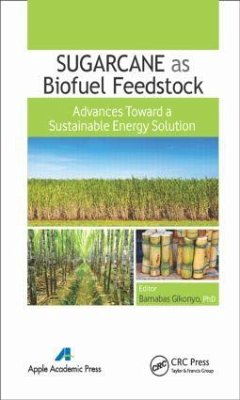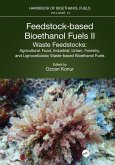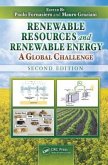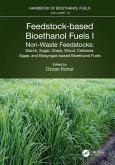This title includes a number of Open Access chapters. As the world's energy hunger grows ever larger, fossil fuel reserves are diminishing-and concerns about climate change remind us that our love affair with fossil fuels cannot continue much longer. This has inspired intense research into sustainable energy sources. Biofuels seemed initially promising, but the world soon realized that food-based biofuel has its own dangers. Second-generation biofuels, however, use biomass from crops' inedible parts-such as the stalks and leaves of sugarcane-offering a far more viable solution. In this book, researchers from around the world review some of the most important and timely topics related to using sugarcane feedstock for biofuel.








